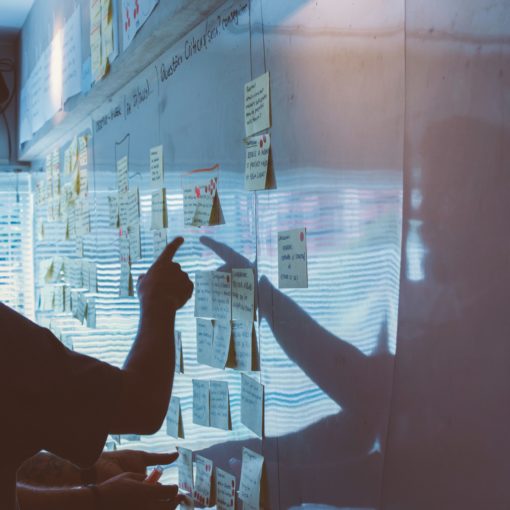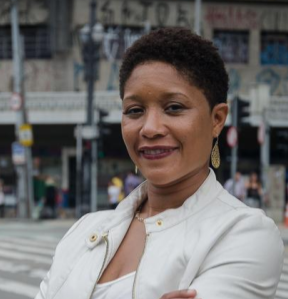Date/Time
Date(s) - 03/01/2022
6:30 pm - 8:30 pm
Categories

While large corporations and the wealthiest nations are primarily responsible for the fossil fuel emissions that drive the climate crisis we are now facing, the worst impacts of that crisis will be felt most keenly in communities around the globe that have not benefited from rapid industrialization. Climate justice has emerged as a concept that acknowledges this disparity and calls for approaches that center the experiences and voices of communities that face the greatest threats.
In this panel, experts representing the fields of ecology, earth and environmental sciences, journalism, and indigenous activism will discuss their own approaches to climate justice and what those of us in the academy can do to help the cause through our own teaching, research, and activism. Topics covered will include:
- The ethics of collaboration between scholars and communities, especially indigenous communities
- Resources and methods educators can use to bring climate justice into the classroom
- Countering misinformation and false narratives around climate change
- The interconnectedness of wild spaces to the health of our communities, and the broader relationship between culture and ecosystems
- The importance of incorporating science communication into our curricula
RSVP for the panel by registering via Zoom! If you have any accessibility needs for this event, please email us at publicslab@gc.cuny.edu.
The PublicsLab thanks Jeremiah Perez-Torres for his work in organizing this event.
Panelists
 Marina Anderson is Haida and Tlingít from Prince of Wales Island. Marina’s clan is Taakw.aaneidi from Heenya Kwaan. Marina is the Administrator for the Organized Village of Kasaan. She got started in tribal politics initially through her involvement growing up with the Alaska Native Sisterhood where she learned from the elders around her. At 28 years old Marina spends the majority of her free time out on the land and water harvesting traditional medicines and foods to share with her community.
Marina Anderson is Haida and Tlingít from Prince of Wales Island. Marina’s clan is Taakw.aaneidi from Heenya Kwaan. Marina is the Administrator for the Organized Village of Kasaan. She got started in tribal politics initially through her involvement growing up with the Alaska Native Sisterhood where she learned from the elders around her. At 28 years old Marina spends the majority of her free time out on the land and water harvesting traditional medicines and foods to share with her community.
 Chris Morgan is a British-American ecologist, conservationist, filmmaker, TV host and podcaster. His stories from 6 continents have reached hundreds of millions of people worldwide as part of his mission to connect listeners to nature and to help conserve our beautiful planet. For thirty years his ecology and conservation work has focused on bears and other large carnivores worldwide. Through his work as a wilderness guide he has escorted hundreds of people into wild locations around the world from the Arctic to Antarctica, to share the wonder of nature, and trigger conservation initiatives. Morgan has hosted and narrated countless television shows for PBS, National Geographic Television, BBC, Discovery Channel, and has appeared on the Late Show with David Letterman. Chris authored the book ‘Bears of the Last Frontier’ and co-created and hosted a PBS Nature television series of the same title. He is the co-founder of Wildlife Media, the non-profit organization that produced BEARTREK, a feature-length documentary (premiered in 2018) that follows Chris ’journey by motorcycle to Alaska, Peru, the Canadian north, and Borneo. Chris is also the host and co-creator of ‘THE WILD with Chris Morgan’, a podcast that transports people back to nature through exquisite storytelling about wildlife, conservation, and the wonders of our wild planet.
Chris Morgan is a British-American ecologist, conservationist, filmmaker, TV host and podcaster. His stories from 6 continents have reached hundreds of millions of people worldwide as part of his mission to connect listeners to nature and to help conserve our beautiful planet. For thirty years his ecology and conservation work has focused on bears and other large carnivores worldwide. Through his work as a wilderness guide he has escorted hundreds of people into wild locations around the world from the Arctic to Antarctica, to share the wonder of nature, and trigger conservation initiatives. Morgan has hosted and narrated countless television shows for PBS, National Geographic Television, BBC, Discovery Channel, and has appeared on the Late Show with David Letterman. Chris authored the book ‘Bears of the Last Frontier’ and co-created and hosted a PBS Nature television series of the same title. He is the co-founder of Wildlife Media, the non-profit organization that produced BEARTREK, a feature-length documentary (premiered in 2018) that follows Chris ’journey by motorcycle to Alaska, Peru, the Canadian north, and Borneo. Chris is also the host and co-creator of ‘THE WILD with Chris Morgan’, a podcast that transports people back to nature through exquisite storytelling about wildlife, conservation, and the wonders of our wild planet.
 Kara Norton is an award-winning journalist who has reported on a range of climate stories for the science show NOVA on PBS, including how a major Atlantic current is undergoing a complete loss of stability due to human-induced climate change, and how climate-fueled natural disasters are impacting communities of color and critical infrastructure in the United States. She is the recipient of the 2021 Rising Star Award presented by Jackson Wild. This award reflects ongoing and exceptional contribution to our planet while demonstrating leadership and innovation that promises extended impact in the future. On the NOVA Education team, Kara helps support millions of educators nationwide by creating compelling and accurate resources from NOVA’s broadcast shows which meet national standards and complement student learning.
Kara Norton is an award-winning journalist who has reported on a range of climate stories for the science show NOVA on PBS, including how a major Atlantic current is undergoing a complete loss of stability due to human-induced climate change, and how climate-fueled natural disasters are impacting communities of color and critical infrastructure in the United States. She is the recipient of the 2021 Rising Star Award presented by Jackson Wild. This award reflects ongoing and exceptional contribution to our planet while demonstrating leadership and innovation that promises extended impact in the future. On the NOVA Education team, Kara helps support millions of educators nationwide by creating compelling and accurate resources from NOVA’s broadcast shows which meet national standards and complement student learning.
 Monica Varsanyi is Professor of Geography and Executive Officer of the Earth and Environmental Sciences Program at the CUNY Graduate Center, and in the Political Science Department at John Jay College, CUNY. She is a scholar of migration, membership, and the state, with a specific focus on unauthorized immigration and immigration federalism in the United States. Her books include Taking Local Control: Immigration Policy Activism in U.S. Cities and States (Stanford University Press, 2010, edited volume) and Policing Immigrants: Local Law Enforcement on the Front Lines (with Doris Marie Provine, Scott Decker, and Paul Lewis; University of Chicago Press, 2016; winner of the “2018 Outstanding Book in Policing Award” by the American Society of Criminology). Her current research project, with Marie Provine, traces the evolution of immigration policies and the tensions of immigration federalism as they have played out in New Mexico and Arizona from the Territorial Period to the present. She is also working on a project that explores the nativist roots of voter disenfranchisement in the United States. Her research has been funded by the National Science Foundation and National Endowment for the Humanities, and she serves on the Research Advisory Board of the Vera Institute of Justice in New York City.
Monica Varsanyi is Professor of Geography and Executive Officer of the Earth and Environmental Sciences Program at the CUNY Graduate Center, and in the Political Science Department at John Jay College, CUNY. She is a scholar of migration, membership, and the state, with a specific focus on unauthorized immigration and immigration federalism in the United States. Her books include Taking Local Control: Immigration Policy Activism in U.S. Cities and States (Stanford University Press, 2010, edited volume) and Policing Immigrants: Local Law Enforcement on the Front Lines (with Doris Marie Provine, Scott Decker, and Paul Lewis; University of Chicago Press, 2016; winner of the “2018 Outstanding Book in Policing Award” by the American Society of Criminology). Her current research project, with Marie Provine, traces the evolution of immigration policies and the tensions of immigration federalism as they have played out in New Mexico and Arizona from the Territorial Period to the present. She is also working on a project that explores the nativist roots of voter disenfranchisement in the United States. Her research has been funded by the National Science Foundation and National Endowment for the Humanities, and she serves on the Research Advisory Board of the Vera Institute of Justice in New York City.
Moderator
 Michael Ryan Clark is an award winning filmmaker and photographer who has dedicated his life to creating impact driven wildlife conservation media. Documenting important and untold conservation stories has taken Michael across 6 continents and dozens of countries. Michael has contributed photos, video, and writing to National Geographic, accepted awards at the United Nations, and worked with companies such as Disney, CBS, PBS Nature, and has partnered with various NGO’s. He enjoys using storytelling skills gained from his English Education degree at Boston University, in conjunction with his passion for media to create content that brings awareness to conservation issues with the goal of enacting measurable change.
Michael Ryan Clark is an award winning filmmaker and photographer who has dedicated his life to creating impact driven wildlife conservation media. Documenting important and untold conservation stories has taken Michael across 6 continents and dozens of countries. Michael has contributed photos, video, and writing to National Geographic, accepted awards at the United Nations, and worked with companies such as Disney, CBS, PBS Nature, and has partnered with various NGO’s. He enjoys using storytelling skills gained from his English Education degree at Boston University, in conjunction with his passion for media to create content that brings awareness to conservation issues with the goal of enacting measurable change.






